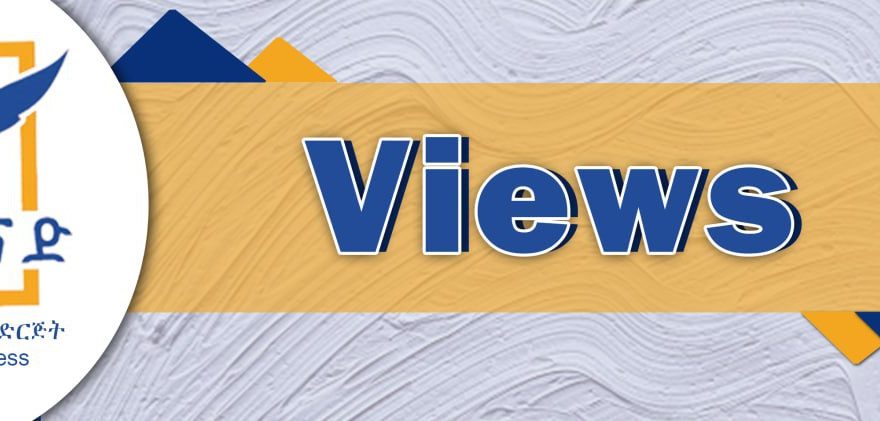
The issue of democracy and freedom was unknown in Ethiopia during the imperial regime and all regimes before that as there were no constitutional and legal provisions enacted for this and due to the nature of the regimes. However, since 1974 the concepts of democracy have taken twists and turns swinging between socialist, revolutionary democracy. The prosperity party which is now ruling the country has its own version of conceptualizing democracy and freedom. The author of this article intends to make a comparative analysis of these concepts and proceed to the realpolitik of democracy and freedom in Ethiopia with some recommendations.
In popular understanding, democracy is associated with elections to the parliament. In broader sense however, democracy is manifested in various aspects of human life including economic, cultural and social rights and freedom of exercising them.
Freedom and democracy are different. Democracy addresses how affairs in the public sector will be conducted. Democracy is greater when individuals vote on those matters assigned to the public sector. On the other hand, freedom is concerned with the relationships among people in the private sector. Freedom means individuals may choose how to interact on a voluntary basis outside the purview of the state. Let us look into how various fields of thought understand the relationship between the two.
As an economic and political philosophy, Neoliberalism interprets democracy and freedom primarily through the lens of market-driven policies, limited government intervention, and individual liberties.
In neo-liberalism democracy is often linked to free-market policies, where economic liberalization is seen as a path to political freedom. The state is expected to have a limited role, mainly ensuring the protection of private property and enforcing contracts rather than direct economic intervention. It emphasizes elections and formal institutions rather than deeper social or economic justice. Individual freedom is closely tied to market participation, private enterprise, and deregulation. Social programs are minimized, with the belief that personal responsibility and free markets will drive prosperity. Policies favor free trade, privatization, and foreign investments as essential elements of freedom.
However, critics argue that neoliberalism prioritizes corporate power and wealth accumulation, often at the expense of social justice. Privatization and deregulation may erode essential public services, leading to disparities in access to education, healthcare, and welfare .Emphasis on elections without addressing systemic inequalities can lead to a democracy that serves elites rather than the broader population.
In revolutionary democracy, democracy is seen as a means to achieve economic and social justice, rather than just a system of political representation .Often involves a single-party or dominant-party system guiding the masses toward revolutionary goals. Revolutionary democracy prioritizes national sovereignty, economic self-reliance, and collective rights over western-style individual freedoms.
Freedom is often defined in terms of freedom from colonialism, imperialism, and capitalist exploitation. Multi-party competition is often limited, with power concentrated in a vanguard party that claims to represent the people’s long-term interests. Opposition is sometimes seen as counter-revolutionary and may be suppressed. It promotes state control over key economic sectors to ensure equitable distribution of resources. It rejects neoliberal free-market policies in favor of socialist-oriented economic planning.
The ruling party or leadership actively organizes workers, farmers, and other social groups into structured political organizations. Revolutionary democracy encourages mass participation in political decision-making, but often under direction of a central authority.
On the other hand liberal democracy is based on a multi-party system with strong institutions and a regulated open market. Individual rights are supposedly respected.
After this background analysis, it would be appropriate to dwell upon the challenges in managing democracy and freedom in Ethiopia.
Ethiopia has made significant strides toward democracy, particularly with political reforms and greater civic engagement. However, managing democracy and freedom remains a complex challenge due to historical, political, ethnic, economic, and institutional factors.
Even among those who claim to be politicians, their conception of any form of democracy varies based on their interest in power politics. Their views indicate a mixture of neo-liberal views and some elements of revolutionary democracy blended with misconceptions on self-determination and democracy. Many citizens, on the other hand, find it difficult to associate democracy with civic responsibility and the rule of law.
The Constitution of the Federal Democratic Republic of Ethiopia devotes more than 20% of the entire articles to the provisions of civil democratic rights and freedom. However, it is difficult to conclude that the entire populations in the country and overseas are aware of the contents of these provisions. Besides, there are only very few CSOs inn the country that work on capacity building and training programs related to constitutional rights and legally allowed civil rights and freedom,
Ethiopia has well established institutions of democracy like Office of the Ombudsman, Ethiopian Human Rights Commission and a number of other institutes that are directly or indirectly concerned with issues of democracy and human rights. Although these organizations are attempting to carry out their duties based on the responsibilities bestowed upon them by law, they operate in very difficult conditions due to wars and civil strife conflicts and crises in various regions in northern Ethiopia.
On the other hand, ethnocentric understanding of democracy is limiting universal democratic rights and civil liberties only to one’s ethnic group regarding others as enemies and any government as a threat to democracy. They fail not only to perceive democracy in its wider context but also detach it from human rights. For instance, preventing students from going to school and cold-bloodedly killing teachers by those who claim to struggle for survival is proving the opposite. Although the ethnic groups in Ethiopia have acquired their democratic rights to practice their culture and use their own languages in education and due process of law, they are already being trapped by the very rights for whom they have claimed to fight.
Continuous hate speeches now posted on social media outlets are doing untold deserves on the promotion of democracy, freedom and justice in Ethiopia. Biases, stereotypes and appalling insults on the political order are obstructing the progress of nascent democracy in Ethiopia.
Preventing the normal flow of education by killing teachers and burning down schools in the country in violation of human rights in some regions of the country is no less than declaring a doomsday on the future of children and the youth in Ethiopia and darkening their bright future.
Both democracy and freedom require a strong economic base and it is very difficult to assume that food insecure populations in Ethiopia can practice their full democratic rights. On the other hand freedom implies respecting and fully recognizing the freedom of others outside one’s ethnic group.
How could the nation overcome the challenges of administering democracy and freedom in the country? The following are some suggestions from the writer.
In the first place, political parties, media houses and MPs need to engage in massive public education programs in a meaningful participatory process. This is far greater duty than pouring out press releases on issues that could have been settled by discussions and honest dialogues. Political parties are duty bound to help educate the public on issues that directly concern them.
Democratic and constitutional rights of citizens must be protected by law enforcement bodies and all institutions that are concerned with public human rights.
Democratic institutions in the country must be strengthened to discharge their responsibilities in collaboration with all citizens and the government. It is important to uphold public morals and norms of behavior that are important for upholding democracy.
Special attention must be accorded to children, girl children, women, disabled persons and IDPs across the country. Personal and group rights and freedoms must be given full protection of the law to ascertain social harmony and democracy. Democracy is something that is not dished out but recognized as indicated in the Ethiopian constitution.
The right of children to get education must be enforced not only by the government but also by entire public.
Ethiopia’s reform program which also includes conduct of the national dialogue must be supported by Ethiopians here and in the diaspora. The public needs to support the efforts of the National Dialogue Commission and efforts underway to implement transitional justice policy.
Legal and Institutional Reforms in which the government repealed and amended repressive laws, including the Anti- Terrorism Proclamation and the Charities and Societies Proclamation, which had been used to silence opposition and restrict civil society have been instrumental in promoting democracy through legal reforms. This needs to be assessed and be used to further promote democracy and democratic rights in the country.
Traditional values and norms as well as traditional ways of ensuring justice and reconciliation may be used along with modern ways of resolving conflicts among groups and ethnic entities.
The writer of this article suggests that issues of democracy, freedom, human rights and related issues of democracy and justice may be incorporated in school curriculum in Ethiopia so that students may be able to grow as responsible citizens
In the modern epoch, democracy cannot be achieved or freedom cannot be attained through the battle of a gun. This has been proved in Ethiopia over the last several decades. The only viable way to promote democracy in Ethiopia is through dialogue and negotiations among the people of Ethiopia. All Ethiopians here and overseas are well aware of the fact that war cannot bring development but for sure is destructive and pushes the country back to the Stone Age.
On the other hand, any group or organization with legal personality or political parties need to abide by the rule of law in the country. This is of crucial importance for promoting democracy in Ethiopia.
Editor’s Note: The views entertained in this article do not necessarily reflect the stance of The Ethiopian Herald
BY SOLOMON DIBABA
THE ETHIOPIAN HERALD THURSDAY 27 MARCH 2025





